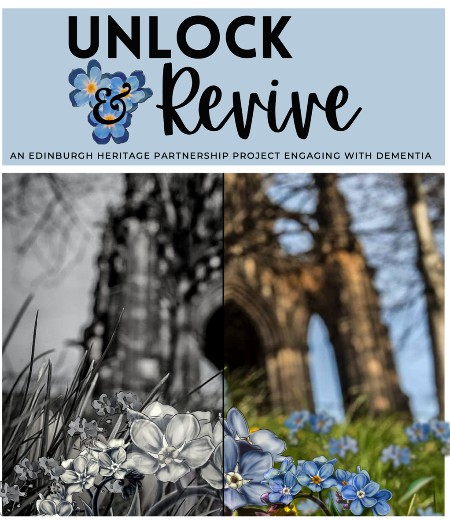Unlock & Revive research project will inform thinking on future event models
People with dementia (PWD) and their carers were able to find a new appreciation for their leisure interests through regular Zoom-based social events during the pandemic, University researchers found.
Academics from Edinburgh Napier evaluated a project which saw local cultural organisations offer 30 specially created online engagement sessions to PWD from April-June 2021.

The programme of events set up in response to Covid-19 featured gardening, painting, art, cookery, history, literature and music amongst other topics.
The Unlock & Revive research project set out to identify good practice in the creation and production of the online events and the key ingredients needed to bring positive benefits for the dementia community. The findings will inform thinking on future event models, with most of the attendees keen to see some form of online delivery maintained.
The research team, on which the University of Edinburgh was also represented, said there was clear evidence last year’s digital events provided stimulation for individuals unable to attend live events, and that they boosted attendees’ sense of wellbeing.
The target audience preferred to be engaged rather than educated, and weekly participation allowed them to feel more connected to others within the dementia community and built their self-confidence.
And although they would all have preferred to attend events in-person, they enjoyed the online socials, with Zoom the preferred platform.
The research report also includes a series of detailed recommendations on the format of events, and how they should be planned, promoted and delivered.
Events moved online
Prior to the pandemic, there had been a programme of in-person Lothian-based dementia-friendly cultural events, but the onset of Covid-19 restrictions forced them online.
The Unlock & Revive project involved online events hosted by organisations including National Galleries of Scotland, Royal Botanic Garden Edinburgh, National Library of Scotland, City of Edinburgh Council, National Museums Scotland, Historic Environment Scotland and the University of Edinburgh.
Researchers monitored the sessions in person, ran post-event focus groups with attendees and carried out interviews with event organisers.
Their report concluded: “The findings provide a valuable insight into how to effectively plan and deliver online events to the people with dementia community and their carers.
“It is hoped that this is the first step of wider research to examine effective engagement at cultural and heritage events whether they are delivered online, face to face or blended.”
The Edinburgh Napier staff on the research team were Dr Gary Kerr and Professor Jane Ali-Knight from the Business School, Dr Stephen Smith from the School of Health & Social Care, and project research consultant Hannah Stewart.